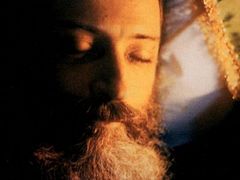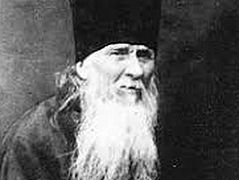Young converts to Orthodox Christianity were especially drawn to Fr. Seraphim (Rose). His down-to-earth approach, elevated by the spiritual discernment he earned through the guidance of his spiritual mentors, his study of Patristic writings, and mainly, his own podivgs and suffering in life, made him a true harbor from the storms of youth and a wise instructor to those having zeal without reason.
On his repose day, we present a selection of his counsels to young converts.
***
From: Father Seraphim Rose: His Life and Works by Hieromonk Damascene (Platina: St. Herman Press, 2010)
Develop normal, human feelings
Not too many years ago a young monastic aspirant went to Mount Athos. In talking with the venerable abbot of the monastery where he wished to stay, he told him, “Holy Father! My heart burns for the spiritual life, for asceticism, for unceasing communion with God, for obedience to an Elder. Instruct me, please, holy Father, that I may attain to spiritual advancement.” Going to the bookshelf, the Abbot pulled down a copy of David Copperfield by Charles Dickens. “Read this, son,” he said. “But Father!” objected the disturbed aspirant. “This is heterodox Victorian sentimentality, a product of the Western captivity! This isn't spiritual; it's not even Orthodox! I need writings which will teach me spirituality!” The Abbot smiled, saying, “Unless you first develop normal, human, Christian feelings and learn to view life as little Davey did-with simplicity, kindness, warmth, and forgiveness-then all the Orthodox ‘spirituality’ and Patristic writings will not only be of no help to you-they will turn you into a ‘spiritual’ monster and destroy your soul…
The education of youth today, especially in America, is notoriously deficient in developing responsiveness to the best expressions of human art, literature, and music. As a result, young people are formed haphazardly under the influence of television, rock music, and other manifestations of today's culture (or rather, anti-culture); and, both as a cause and as a result of this-but most of all because of the absence on the part of the parents and teachers of any conscious idea of what Christian life is and how a young person should be brought up in it-the soul of a person who has survived the years of youth is often an emotional wasteland, and at best reveals deficiencies in the basic attitudes towards life that were once considered normal and indispensable.
Few are those today who can clearly express their emotions and ideas and face them in a mature way; many do not even know what is going on inside themselves. Life is artificially divided into work (and very few can put the best part of themselves, their heart, into it because it is “just for money”), play (in which many see the “real meaning” of their life), religion (usually no more than an hour or two a week), and the like, without an underlying unity that gives meaning to the whole of one's life. Many, finding daily life unsatisfying, try to live in a fantasy world of their own creation (into which they also try to fit religion). And underlying the whole of modern culture is the common denominator of the worship of oneself and one's own comfort, which is deadly to any idea of spiritual life.
 Fr. Seraphim's grave at St. Herman's Monastery in Platina, California. Photo: Reddit
Fr. Seraphim's grave at St. Herman's Monastery in Platina, California. Photo: Reddit
Such is something of the background, the “cultural baggage,” which a person brings with him today when he becomes Orthodox. Many, of course, survive as Orthodox despite their background; a few come to some spiritual disaster because of it; but a good number remain crippled or at least spiritually underdeveloped because they are simply unprepared for and unaware of the real demands of spiritual life.
As a beginning to the facing of this question (and hopefully, helping some of those troubled by it), let us look here briefly at the Orthodox teaching on human nature as set forth by a profound Orthodox writer of the 19th century, a true Holy Father of these latter times-Bishop Theophan the Recluse (1894). In his book What is Spiritual Life and How to Attune Oneself to It, he writes:
Human life is complex and many-sided. In it there is a side of the body, another of the soul, and another of the spirit. Each of these has its own faculties and needs, its own methods and their exercise and satisfaction. Only when all our faculties are in movement and all our needs are satisfied does a man live. But when only one little part of our needs is satisfied-such a life is not life .... A man does not live in a human way unless everything in him is in motion .... One must live as God created us, and when one does not live thus one can boldly say he is not living at all.
The distinction made here between “soul” and “spirit” does not mean that these are separate entities within human nature; rather, the “spirit” is the higher part, the “soul” the lower part, of the single invisible part of man (which as a whole is usually called the ‘soul’). To the “soul” in this sense belongs those ideas and feelings which are not Occupied directly with spiritual life-most of human art, knowledge, and culture; while to the 'spirit' belong man's strivings towards God through prayer, sacred art, and obedience to God's law.
From these words of Bishop Theophan one can already spot a common fault of today' s seekers after spiritual life: Not all sides of their nature are in movement; they are trying to satisfy religious needs (the needs of the spirit) without having come to terms· with some of their other (more specifically, psychological and emotional) needs, or worse: they use religion illegitimately to satisfy these psychological needs. In such people religion is an artificial thing that has not yet touched the deepest part of them, and often some upsetting event in their life, or just the natural attraction of the world, is enough to destroy their plastic universe and turn them away from religion. Sometimes such people, after bitter experience in life, return to religion; but too often they are lost, or at best crippled and unfruitful…
A plastic approach
 Georgian, Serbian, Romanian, and Greek icons of Fr. Seraphim
Georgian, Serbian, Romanian, and Greek icons of Fr. Seraphim
Fr. Seraphim saw this “plastic” approach to religion most graphically when a young pilgrim, having spent time at another monastery in America, came to Platina talking all about elders, hesychasm, Jesus Prayer, true monasticism, and the ascetic wisdom of the Holy Fathers. One day Fr. Seraphim saw him walking around the monastery singing rock songs, snapping his fingers and bouncing with the rhythm. Surprised, Fr. Seraphim asked him if he didn't think this might go against all his interest in spirituality, but the young man just shrugged his shoulders and replied: "No, there's no contradiction. Whenever I want spirituality, I just switch on the Elder"-meaning that he could take out his rock tape and put in a tape of his Elder giving a spiritual discourse.
The fact that this young man could compartmentalize his life like this, Fr. Seraphim understood, showed that something was missing in the basic formation of his soul. To explain what is meant by this formation, he again referred in his article to a passage from St. Theophan the Recluse:
A man has three layers of life: that of spirit, of the soul, and of the body. Each of these has its sum of needs, natural and proper to a man. These needs are not all of equal value, but some are higher and others are lower; and the balanced satisfaction of them gives a man peace. Spiritual needs are the highest of all, and when they are satisfied, then there is peace even if the others are not satisfied; but when spiritual needs are not satisfied, then even if the others are satisfied abundantly, there is no peace. Therefore, the satisfaction of them is called the one thing needful.
When spiritual needs are satisfied, they instruct a man to PULL into harmony with them the satisfaction of one’s other needs also, so that neither what satisfies the soul nor what satisfies the body contradicts spiritual life, but helps it; and then there is a full harmony in a man of all the movements and revelations of his life, a harmony of thoughts, feelings, desires, undertakings, relationships, pleasures. And this is paradise!
***
Letters
 Fr. Seraphim with his spiritual children Fr. Alexey Young and Seraphim Nichols
Fr. Seraphim with his spiritual children Fr. Alexey Young and Seraphim Nichols
Knowing better than anyone else
If Fr. N. and his followers do not change some attitudes in the days ahead, they will inevitably go the way of all “crazy converts”—more Orthodox in appearance than many that so far have gone off the track, but still “crazy”—by which I mean: trusting no one but themselves, “knowing better” than everyone else, losing contact with the whole Church and its universal tradition. It is much better for Fr. N. to have some shocks and jolts now, even over seemingly insignificant or exaggerated things, than to continue his way peacefully until a real big shock comes and finds him unprepared and untested… Letter, (Dec. 1/14, 1975)[1]
“Rightness” is not the most important thing
Beware. No matter how “right” you may be on various points, you must be diplomatic also. The first and important thing is not “rightness” at all, but Christian love and harmony. Most “crazy converts” have been “right” in the criticisms that led to their downfall; but they were lacking in Christian love and charity and so went off the deep end, needlessly alienating people around them and finally finding themselves all alone in their rightness and self-righteousness. Don’t you follow them! Letter, (June 5/18, 1979)[2]
Only with suffering
D. is right—don’t be too taken up by “fantasies.” But don’t entirely squash them, either—without dreams, we can’t live!…
May God grant you to continue with such freshness towards Orthodoxy as you felt with reading St. Symeon’s Homilies! Be aware, however, that this will be possible only with sufferings; everything you need to deepen your faith will come with suffering—if you accept it with humility and submission to God’s will. It is not too difficult to become “exalted” by the richness and depth of our Orthodox Faith; but to temper this exaltation with humility and sobriety (which come through the right acceptance of sufferings) is not an easy thing. In so many of our Orthodox people today (especially converts) one can see a frightful thing: much talk about the exalted truths and experiences of true Orthodoxy, but mixed with pride and a sense of one’s own importance for being “in” on something which most people don’t see (from this comes also the criticism against which you’ve already been warned). May God keep your heart soft and filled with love for Christ and your fellow man… It will come “naturally,” as all things do in spiritual life—with time, patience, suffering, and coming better to know yourself. —Letters of Father Seraphim Rose (May 25, 1979).
Indeed, how we all must learn and relearn that our pretensions and ideas must be tested by reality and forged in suffering.” —Letters of Father Seraphim Rose (Jan. 20, 1975)
You must learn to suffer and bear—but do not view this as something “endless and dreary,” here you are wrong: God sends many consolations, and you will know them again. You must learn to find joy in the midst of increasing doses of sorrow; thus you can save your soul and help others. —Letters of Father Seraphim Rose (Oct. 21, 1975).
Be sensitive to others around you
About you personally, of course, I can’t give any definitive answer. However, I do know that in spiritual life it is often precisely in seemingly “impossible” conditions that one really begins to grow; then one has to become more sensitive, think less of getting one’s own will and ask what is God’s will, learn to see a little deeper into the reality around one—and all this through suffering, both one’s own and that of others. —Letters of Father Seraphim Rose (April 4, 1978).
Be patient and endure
We understand very well your situation as you describe it in your letter. Of course, what you say is “correct” as far as it goes. But you are allowing yourself to make one basic mistake: you are making yourself the judge of your own spiritual state. In your present state of knowledge and experience, you are not able to see whether you need an aspirin or an operation—so try to humble yourself a little to the extent of seeing that you don’t know what is best for you!..
Your answer—if I may be so bold as to tell you—is to be patient, enduring with good hope all the temptations that come your way, and withholding your judgment as to whether you need an aspirin or an operation—until you have acquired more knowledge and experience… You are too young in Orthodoxy to be evaluating your spiritual growth—that is actually a sign of your pride. Be patient, endure, observe, learn—and when the time comes there will come ways of testing your real spiritual growth…
The feeling of emptiness, worldly vanity, helplessness against temptations—will pass; but you should accept all this now as your cross, struggling according to your strength, and not being so proud as to think that you should be above them.—Letters of Father Seraphim Rose (June 22, 1976).
Finish your education
College life will doubtless give you many temptations. But remember that learning in itself is useful and can be used later in a Christian way. Try to avoid the idle activities and temptations you will meet that serve no useful purpose, so that even in a godless atmosphere you can “redeem the time,” as the Apostle Paul says, and make maximum use of the opportunities you are given for learning. —Letters of Father Seraphim Rose (Sept. 5, 1972).
Perhaps you do not know “what next”?… Get the degree first, and then trust to God to open up the way. The political-economic situation in the U.S., as evidently everywhere in the West, is rapidly deteriorating. Worse, the church situation becomes very bad (your situation is not unique!)…
We can’t see the future—but know this, that if you love God and His Orthodox Church and your fellow man—God can and will use you. —Letters of Father Seraphim Rose (July 7, 1974).
Preparing for Baptism
As you prepare for Baptism, I would give you several words of advice:
1. Don’t allow yourself to get stuck on the outward aspect of Orthodoxy—whether the splendid Church services (the “high church” to which you were drawn as a child), the outward discipline (fasts, prostrations, etc.), being “correct” according to the canons, etc. All these things are good and helpful, but if one overemphasizes them one will enter into troubles and trials. You are coming to Orthodoxy to receive Christ, and this you should never forget.
2. Don’t have a hypercritical attitude. By this I don’t mean to give up your intellect and discernment, but rather to place them in obedience to a believing heart (“heart” meaning not mere “feeling,” but something much deeper—the organ that knows God). Some converts, alas, think they are very “smart,” and they use Orthodoxy as a means for feeling superior to the non-Orthodox and sometimes even to Orthodox of other jurisdictions. Orthodox theology, of course, is much deeper and makes much better sense than the erroneous theologies of the modern West—but our basic attitude towards it must be one of humility and not pride. Converts who pride themselves on “knowing better” than Catholics and Protestants often end by “knowing better” than their own parish priest, bishop, and finally the Fathers and the whole Church!
3. Remember that your survival as an Orthodox Christian will depend very much on your contact with the living tradition of Orthodoxy. This is something you won’t get in books and it can’t be defined for you. If your attitude is humble and without hypercriticism, if you place Christ first in your heart, and try to lead a normal life according to Orthodox discipline and practice—you will obtain this contact. Alas, most Orthodox jurisdictions today … are losing this contact out of simple worldliness. But there is also a temptation on the “right side” which proceeds from the same hypercriticism I just mentioned. The traditionalist (Old Calendar) Church in Greece today is in chaos because of this, one jurisdiction fighting and anathematizing another over “canonical correctness” and losing sight of the whole tradition over hyper-fine points… —Letters of Father Seraphim Rose (May 3, 1979).
To our times is given a more humble kind of spiritual life
To our times is given a more humble kind of spiritual life, which Bishop Ignatius Brianchaninov in his excellent book The Arena calls ‘life by counsel’—that is, life according to the commandments of God as learned in the Holy Scripture and Holy Fathers and helped by those who are elder and more experienced. A "starets" can give commands; but a "counselor" gives advice, which you must test in experience.—Letters of Father Seraphim Rose (Aug. 23, 1976).
The devil begins his work with new converts
The devil has begun his work against us. A Russian lady came in this morning to look us over and tell us of the rumors about us in the Russian colony: that we are Communists with a store full of Soviet books; that we are Soviet diplomats using the store as some kind of front; that we are American converts (!); etc. By the time she discovered I wasn’t Russian, she was so charmed that she didn’t mind too much and even bought ten dollars worth of eggs, icons, and cards. Letters (March 26/April 8, 1965)[3]






